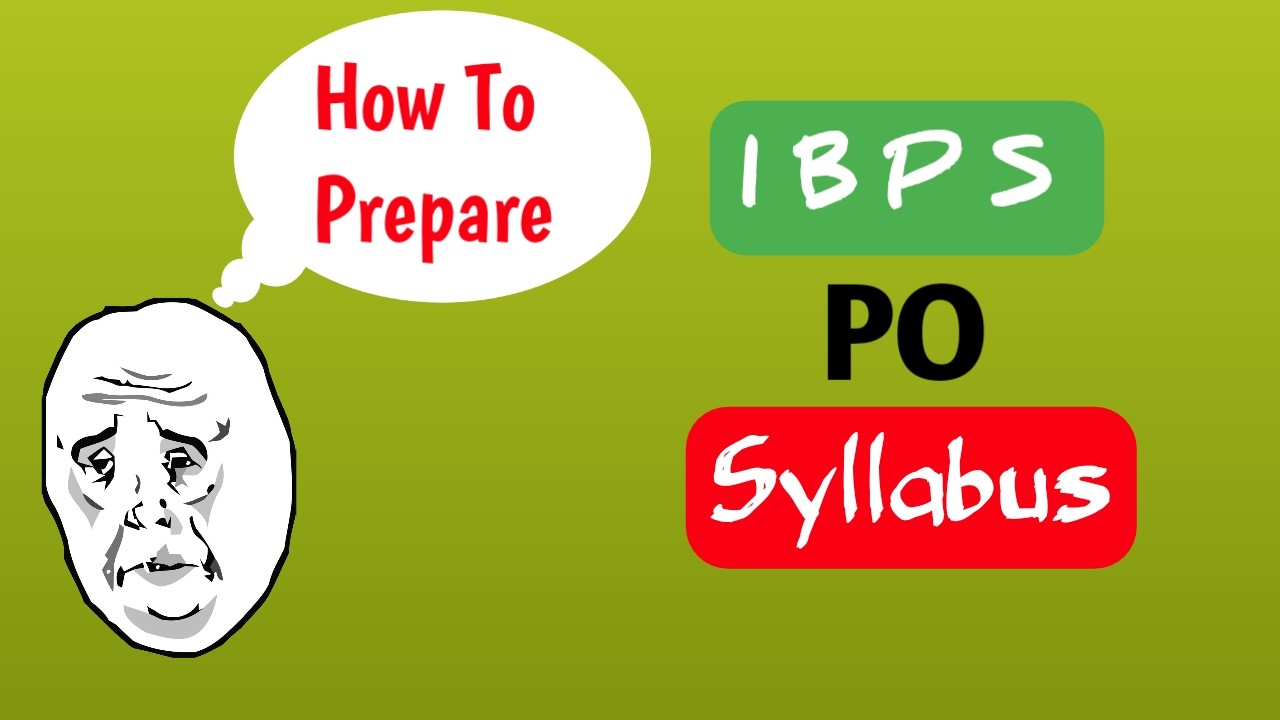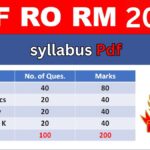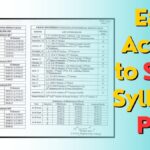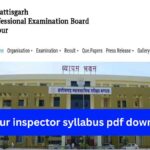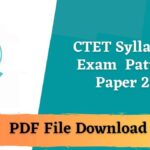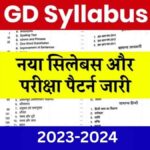Yes, you’ve come to the right place. The article refers to IBPS PO Syllabus in detail. It means you get to see the complete IBPS PO Syllabus in the article. I described all about IBPS PO Syllabus Prelims and Syllabus for IBPS PO Mains.
Firstly, let me inform you why you should take this exam. In my opinion, if you have good knowledge of English and Mathematics, then you should absolutely fill up the form for this exam.
In other words, the exam mainly depends on Mathematics and English.
Hence, students whose these subjects ( English & Mathematics ) are good, they can clear it very easily, but if either of these ( English or Mathematics ) is not strong, I’ll suggest that you shouldn’t put yourself in this exam.
If you also want to prepare for SSC CGL, check the SSC CGL Syllabus for complete knowledge.
If your purpose is mainly to get a job in the banks, I would suggest you to make preparations well.
Although it’ll take a long period of around two or two and a half years for a beginner, it can be done perfectly.
So, let’s dive into the topic.
Table of Contents
IBPS PO Syllabus –
Actually, the commission conducts this exam in three phases and they’re named as Preliminary, Mains & Interview Process.
You will get to see different subjects, timing, number of questions in all these phases. Three subjects are asked in Phase-l ( Preliminary Exam ) and four subjects in Phase-ll ( Mains Exam ), which are well mentioned below.
1. IBPS PO Syllabus ( Prelims ) –
Firstly, let’s talk about Phase-l. IBPS PO Preliminary exam consists of three subjects and every subject has its sectional cut-off. It’s mandatory to cross the cut-off prescribed in all subjects otherwise you will be disqualified.
Additionally, you are given a total of 100 questions to be solved in only one hour of time and to check the speed of the candidates there’s sectional timing for each subject.
In the sectional duration of time, most of the questions of each subject have to be solved by candidates as much as they can. Every question is marked by one. It means the paper is of 100 marks.
| S.N | Subjects | No Of Questions | Total Marks | Duration Of Time |
| 1. | English Language | 30 | 30 | 20 minutes |
| 2. | Quantitative Aptitude | 35 | 35 | 20 minutes |
| 3. | Reasoning Ability | 35 | 35 | 20 minutes |
By chance, if you give the wrong answer to the question, 0.25 marks will be deducted for each question.
Now, we focus on the chapters which are asked in the preliminary exam of every subject.
1. English Language –
As I mentioned above, banks’ English is a little tough, so you’ll have to study it in all aspects.
This section includes 30 questions with 30 marks and the provided time for this section is 20 minutes only. The examiner checks how quickly you can solve the questions with accuracy.
In this, the questions that can be asked from the chapters are shown in the table below.
| 1. | Reading Comprehension |
| 2. | Fill in the blanks |
| 3. | Cloze Test |
| 4. | Paragraph Completion |
| 5. | Spotting Errors |
| 6. | Multiple Meanings |
| 7. | Para Jumbles |
| 8. | Miscellaneous |
2. Quantitative Aptitude –
Now, let’s talk about its second section, which is Quantitative Aptitude. In this, the mathematical skills of the candidates are tested.
This section also has a time period of 20 minutes and in that time you have to solve 35 questions. Each question carries 1 mark.
All the chapters that can be asked in Quantitative Aptitude are discussed below.
| 1. | Simplification | 9. | Data Interpretation |
| 2. | Profit & loss | 10. | Ratio & Proportion |
| 3. | Simple & Compound Interest | 11. | Percentages |
| 4. | Mixers & Alligations | 12. | Sequence & Series |
| 5. | Time & Distance | 13. | Permutation & Combination |
| 6. | Work & Time | 14. | Probability |
| 7. | Mensuration | 15. | Quadratic Equations |
| 8. | Number Systems | 16. | Surds & Indices |
3. Reasoning Ability –
As we all know that reasoning is a subject, which can be scoring for all of us if we prepare it properly.
Usually, questions of reasoning are quite easy, but you’ll have to focus on that in deep. This section has 35 questions to be solved in 35 minutes.
All the chapters are below in the table that will be asked in Reasoning Ability.
| 1. | Tabulation | 9. | Coded Inequalities |
| 2. | Syllogism | 10. | Seating Arrangement |
| 3. | Data Sufficiency | 11. | Puzzles |
| 4. | Direction | 12. | Blood Relationship |
| 5. | Ranking | 13. | Coding & Decoding |
| 6. | Logical Reasoning | 14. | Word Formation |
| 7. | Alphanumeric Series | 15. | Input-Output |
| 8. | Alphabet Combination | 16. | Statement & Argument |
2. IBPS PO Syllabus ( Mains ) –
After qualifying Prelims, Candidates enter the Mains Exam. It means all those candidates who clear Prelims will appear in the Mains Exam.
IBPS PO Mains Exam includes four subjects, which are Data Interpretation & Analysis, General/Economy/Banking Awareness, Reasoning & Computer Aptitude and the last one is the English Language.
Apart from this, there will be a negative marking of 0.25 marks.
Every subject has a different number of questions. I showed a table below, which ensures the actual number of questions, timing & marks of the Phase-ll ( Mains ).
| S.N | Subjects ( Not in sequence ) | No of questions | Total Marks | Medium Of Examination | Separate Timing |
| 1. | Data Interpretation & Analysis | 35 | 60 | English & Hindi | 45 minutes |
| 2. | General/Economy/Banking Awareness | 40 | 40 | English & Hindi | 35 minutes |
| 3. | Reasoning & Computer Aptitude | 45 | 60 | English & Hindi | 60 minutes |
| 4. | English Language | 35 | 40 | English | 40 minutes |
Now, I’m going to discuss all the chapters related to these subjects, which can be asked in the Mains.
1. Data Interpretation & Analysis –
However, there is no need to explain too much about it, because students already know it well what types of questions Data Interpretation & Analysis holds, but if you are a beginner and a bit confused, let me tell you that all those questions come in D.I, which are related to Pie-Charts, Bar-Graphs, Histograms & Line-Graph, etc.
| 1. | Pie-Charts | 3. | Histograms |
| 2. | Bar-Graphs | 4. | Line-Graph |
2. General/Economy/Banking Awareness –
There’s nothing much to be explained about this, because whatever is shown in the title, just study the questions related to those chapters carefully.
3. Reasoning & Computer Aptitude –
You have to study this section very carefully because whatever questions are asked in this part are a bit tricky.
Therefore, you have to pay more attention to this part. Apart from this, you should also have good knowledge of computers so that you can easily solve the questions related to the computer in this section.
Below, we have shown two tables in which all the chapters which can be asked in Reasoning & Computer Aptitude.
(a) Reasoning –
| 1. | Syllogism | 7. | Direction & Displacement |
| 2. | Seating Arrangements ( Linear & Circular ) | 8. | Code Inequalities |
| 3. | Scheduling | 9. | Alphanumeric Series |
| 4. | Double & Triple Lineups | 10. | Ordering & Ranking |
| 5. | Blood Relationships | 11. | Coding & Decoding |
| 6. | Input-Output | 12. | Data Sufficiency |
(b) Computer –
| 1. | Memory | 6. | Computer Abbreviation |
| 2. | Internet | 7. | Computer Fundamentals |
| 3. | Keyboard | 8. | Computer Software/Hardware |
| 4. | Shortcuts | 9. | Computer Networking |
| 5. | Microsoft Office | 10. | Operating System |
4. English Language
| 1. | Reading Comprehension | 4. | Vocabulary |
| 2. | Grammar | 5. | Fill In The Blanks |
| 3. | Verbal Ability |
Additionally, there is another English Language descriptive paper which is about essay and letter writing.
This paper is only for 30 minutes, in which only two types of questions are asked, as I mentioned. The total marks of this paper are considered to be 25.
Interview Process –
Now, the last step is the interview process. If you prepare and pass it well, your job is confirmed.
Here, the examiner asks you questions related to general awareness and current topics. In other words, they test your interpersonal skills. This process doesn’t take much longer than other competitive exams.
How To Prepare for IBPS PO ( Quick Tips ) –
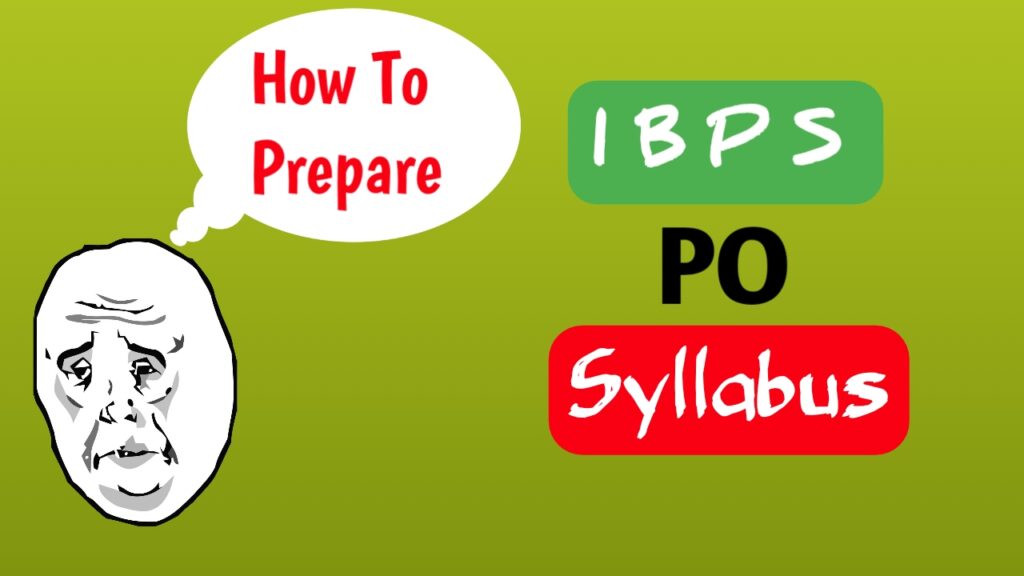
After knowing everything about IBPS PO Syllabus, people are often worried about how to prepare now?
First of all, let me tell you that if you’re considering this exam as an easy task, it’s your illusion. Because I feel that all the bank exams are a bit tough and you’ll have to work harder for them. So, you should study subjects deeply giving at least two hours to each subject.
Sometimes, students don’t give preference to reasoning subject, for that I’ll only say that if you have much time, study it for longer otherwise one hour is enough for reasoning.
Overall, there should be a study of 7 hours at least. You can divide the time into sections. The entire study should be done according to your timetable taking rest not continually so that you don’t have any problem.
Additionally, you’ve to start solving the unsolved immediately after you complete the concepts of all subjects thoroughly.
The people whose English is weak ? –
Here are the best tips for those people who are afraid of studying English or find English a very difficult subject.
If your English is good, only you’ll be able to score more otherwise it may be a bit difficult so I’m giving some tips, through which candidates can easily cover English.
Firstly, I’ll suggest students to study English concepts for at least 2 hours and additionally give some time to read The Hindu newspaper analyzing it.
At the time of reading the newspaper, make sure you are writing down all the important meanings or can try to understand them quickly. I promise that the skill of reading and understanding English will definitely improve by doing so.
For English, both these steps will prove to be the best enough.
Thank you.
